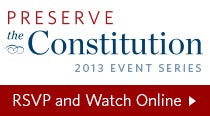The Fourth Amendment prohibits the government from conducting “unreasonable searches and seizures.” However difficult it previously may have been to define a “reasonable” search or seizure, 21st-century technology makes that job far more difficult.
There is virtually no aspect of life that cannot be captured, analyzed, and stored in 0s and 1s. Credit card and smartphone use reveals a wealth of information about someone that in the past had been known only by a small number of family members or close friends. The government’s ability to access information about someone possessed by third parties (e.g., telecommunications companies, Facebook, Amazon) and store that information permanently (via computer databases) enables the government to create detailed files about someone without that person’s knowledge.
That new technologies enhance the government’s ability to acquire and analyze “Big Data” on an unprecedented scale raises the question of whether that practice and others like it are “reasonable” under the Fourth Amendment.
New technologies raise a variety of important constitutional and public policy questions. What should be the rules governing the search and seizure of personal computers, tablets, and mobile phones? Should there be limits on the extent to which the government can obtain information about Americans from third parties?
Should a provision of the Bill of Rights outlawing “unreasonable” searches and seizures be cabined to the specific historical incidents that gave it birth? Would that construction render the amendment a safeguard only for the peculiar historical incidents that troubled late 18th-century Americans rather than a guarantee that law enforcement officers act reasonably today and tomorrow?
How would the Framers have made the trade-off between liberty and security? How should we reassess that trade-off today? And how will the Supreme Court make that trade-off regarding technologies unheard of two decades ago, to say nothing of two centuries ago?
A panel of experts will explore those issues. Please join us at The Heritage Foundation on Friday, September 20, for a lively discussion of those issues by three Fourth Amendment scholars: Susan Herman, president of the American Civil Liberties Union and professor at the Brooklyn University School of Law; Orrin Kerr, professor at the George Washington University School of Law and a renowned expert on the application of the Fourth Amendment to new technologies; and Miguel Estrada, a partner at Gibson, Dunn & Crutcher, a former member of the Justice Department Office of the Solicitor General, and one of the nation’s leading Supreme Court advocates.
Join us live this fall for The Heritage Foundation’s annual Preserve the Constitution series, which brings together the leading voices in law and policy. Click below for more details.

































